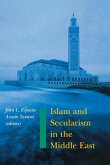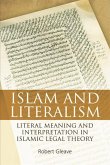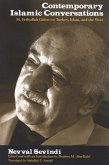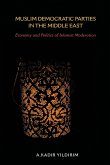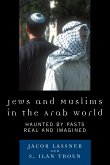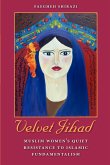Until September 11, 2001 few Westerners had ever heard of "Wahhabism." Now most of us recognize the word as describing an austere and puritanical type of Islam, mentioned frequently in connection with Osama bin Laden and Saudi Arabia and often named as the inspiration behind the 9/11 terror attacks. The word "Wahhabi" stems from the name of the founder of this system of thought, Muhammad Ibn Abd al-Wahhab (1702-1791), companion and religious adviser to Muhammad Ibn Saud, founder of the House of Saud. In this book Natana DeLong-Bas offers an in-depth study of the written works of al-Wahhab. She focuses on four areas: theology, legal theory, proselytizing through education and jihad, and law on women. Through a close reading of al-Wahhab's texts she demonstrates that many aspects of 20th- and 21st-century Wahhabi extremism do not have their origins in his writings. Examples of this extremism include the emphasis on jihad, martyrdom and militancy, and misogyny. The strict division of the world into dar al-Islam and dar al-kufr, according to which only Wahhabi adherents are considered to be true Muslims and all others are non-Muslims who must be fought, is entirely absent from al-Wahhab's work. Instead, argues DeLong-Bas, all of these themes were only added to Wahhabi teachings in the 19th century following armed engagement with the Ottoman Empire. DeLong-Bas's study fills an enormous gap in the literature about Wahhabism by returning to the original writings of the founder of the movement. She debunks the common journalistic portrayal of Muhammad Ibn Abd al-Wahhab as an illiterate, rural bumpkin with no scholarly formation. Her revisionist reading of al-Wahhab's thought will be controversial but impossible to ignore. The book will be essential reading for students and scholars of Islam as well as for those interested in the background of this dangerous modern ideology.
In this book Natana DeLong-Bas offers an in-depth study of the written works of al-Wahhab and demonstrates how it has been distorted into the extremist ideology now propagated by Osama bin Laden and his followers. Through a close reading of al-Wahhab's texts she demonstrates that many aspects of 20th- and 21st- century Wahhabi extremism do not have their origins in his writings but were added to Wahhabi teachings in the 19th century. She debunks the common journalistic portrayal of Muhammad Ibn Abd al-Wahhab as an illiterate, rural bumpkin with no scholarly formation. Her revisionist reading of al-Wahhab's thought will be controversial but impossible to ignore.
In this book Natana DeLong-Bas offers an in-depth study of the written works of al-Wahhab and demonstrates how it has been distorted into the extremist ideology now propagated by Osama bin Laden and his followers. Through a close reading of al-Wahhab's texts she demonstrates that many aspects of 20th- and 21st- century Wahhabi extremism do not have their origins in his writings but were added to Wahhabi teachings in the 19th century. She debunks the common journalistic portrayal of Muhammad Ibn Abd al-Wahhab as an illiterate, rural bumpkin with no scholarly formation. Her revisionist reading of al-Wahhab's thought will be controversial but impossible to ignore.


